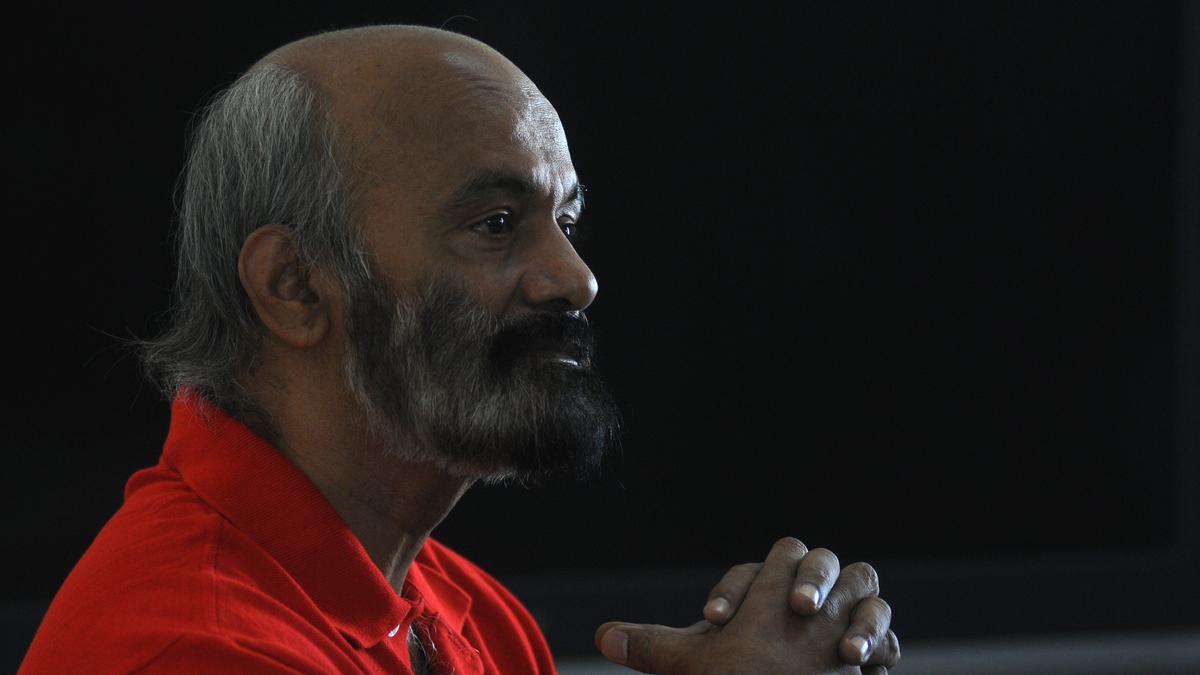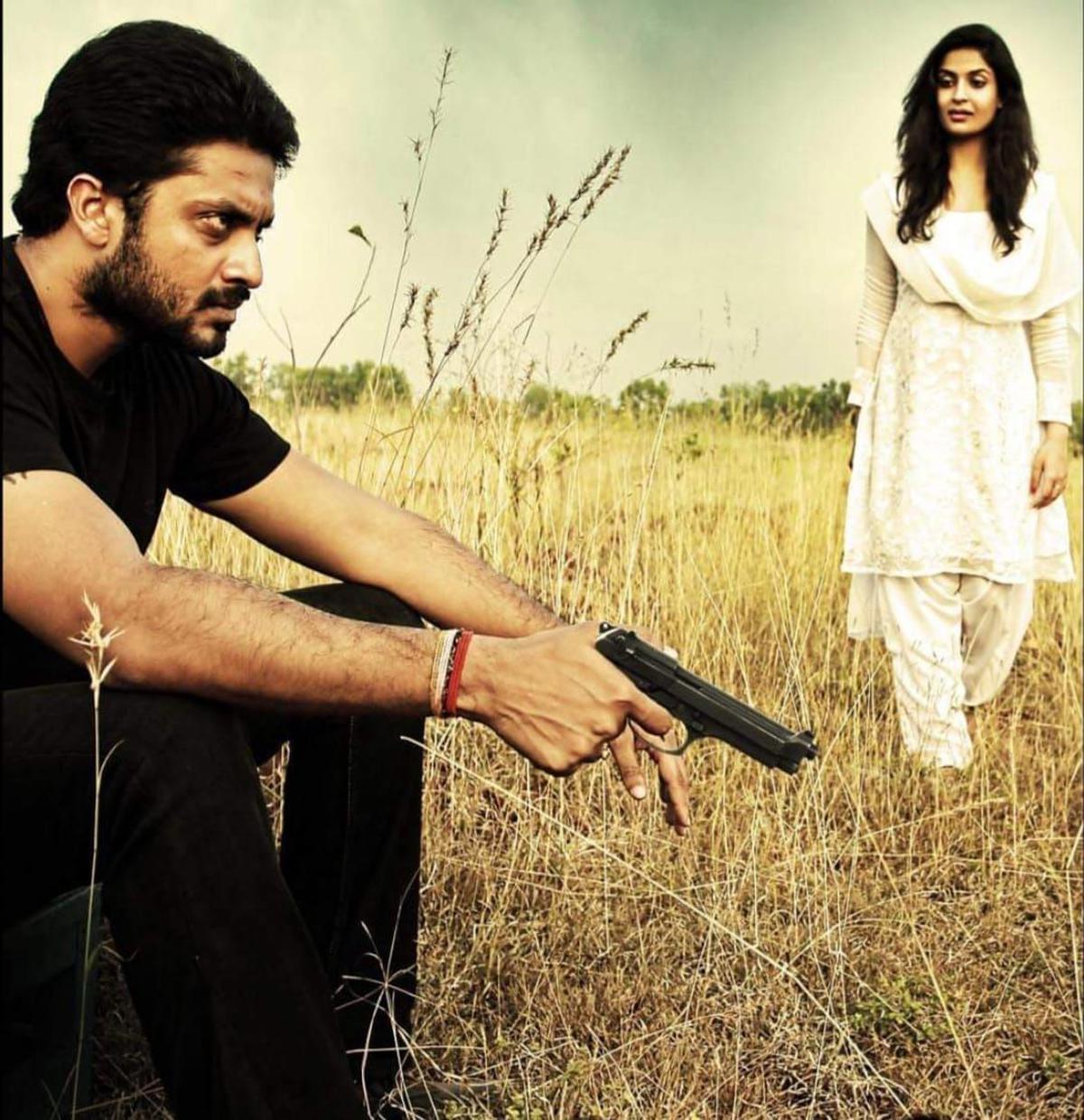
Far mightier than the sword: Agni Sreedhar on his tryst with cinema
https://th-i.thgim.com/public/incoming/jin0k/article67374511.ece/alternates/LANDSCAPE_1200/Agni_Sridhar_02.jpg
Agni Sreedhar, a name that ruled the underworld in Bengaluru in the late 80s, is today a soft-spoken person who is at his “happiest best” when his nose is “buried deep in books”. Despite being known as the dark lord, deep down he had strong literary leanings and craved to wield a pen rather than a machete.
One thought that always tugged at his heart was, “I was not the beast I was made out to be. I started writing about what drove me into the underworld,” says Agni, who adds that no matter what he does, his name will always be associated as a man from the underworld, who relives his memories by penning them down.
Innate desire
“It was not those experiences that inspired me to become a writer, but my innate desire to write, which I nurtured since I was a child. I started reading at the age of eight. By the time I was 20, I was associated with the top literary personalities of Karnataka. I was in the elite company of Lankesh and UR Ananthamurthy… I was close to celebrities such as Rajkumar and even acted in a film with him in 1984. But, in my 30s, circumstances forced me into the underworld. At some point, I lost connection with everyone here. Yet, the desire to write always burned within me.”
First steps
Write Agni did, and his first published work was Dadagiriya Dinagalu. Based on his life, the book blazed with honest emotions, weaknesses and the agony of his life in the underworld. It was made into a Kannada film — Aa Dinagalu (2007).
Directed by KM Chaitanya, the film starred Chethan Kumar, Sharath Lohitashwa, Ashish Vidhyarthi, Atul Kulkarni and Veda Sastry among others. It went on to become a cult film and bagged every award during its time (2007-08), including the Karnataka State Film Award.
Glamour quotient
Agni believes: “At that time, there were writers who wrote about the underworld in a glamorous manner leaning on their imagination. Everything was exaggerated.”
Agni Sreedhar
| Photo Credit:
BHAGYA PRAKASH K
People, Agni says looked at him as if he were a beastly character. “That was when I decided that this perception of me and this world could be changed only through my writings. I wanted to show that even in the underworld there are emotions, relationships, situations and incidents that can make anyone become anything.”
Agni wanted to tell people he was different from what they imagined him to be. “And I started to write,” shares Agni, who has never looked back since.
Agni was, once again, a force to reckon with, this time in the world of letters. Besides books, he wrote stories and screenplays for films such as Kallara Santhe, Thamassu, Edegarike, Kiragoorina Gayyaligalu and Head Bush.
He even started a weekly Kannada newspaper — Agni.
“All these were my efforts to write about the outlaws and bring their issues to the forefront.”
What made Agni a popular writer were his screenplays for cinema, for which he credits director Sumana Kittur. “She inspired me to continue writing, no matter what. She is hard working and deep in her thinking.”
Garnering praise
“Not many people know that her work is praised by some of the legendary film directors in Hindi cinema, including Ram Gopal Varma, who came specially to Bengaluru to meet her and me after watching Edegarike.”
He co-wrote the film with Sumana who directed it. Edegarike was selected for a screening at the recently concluded Indo-French International Film Festival.
According to Agni, writing for a film is a different ball game when compared to writing a book. “In the latter, you are free to write. Nothing can bind you. It is just me and the words. I am not worried about who will read or like what I write. It is a free-flowing expression of emotions and thought. That is not so in scripting a film. This is a different genre.

A still from the film ‘Edegarike’
| Photo Credit:
Special Arrangement
“Money is involved and we have to write within certain constraints. One has to keep in mind certain factors, if a scene will suit an actor and his on-screen persona, if the dialogues work, which make you feel confined. It is a bigger challenge.”
Agni also donned the hat of a director with the film Tamassu, which featured Shivarajkumar and was adjudged as the second best film at the Karnataka State Film Awards, yet he did not pursue direction.
“Direction is a herculean task and drains me of my energies, specifically the post-production part. Hence, I prefer writing. From Aa Dinagalu to Headbush, I always make it a point to visit the film sets.”
He now looks forward to the release of the film Kreem, which again is based on crime. He has written the story and screenplay. “This film will break the myths about the Dandupalya gang. We hope to release this in multiple languages too. Not many know that 80 bodies of women were found years ago. These cases were ‘fixed’ on the Dandupalya gang, who were also given capital punishment. They were thieves, and even when they were in police custody, fresh bodies were found.
“This happened while I was embroiled in the Kotwal case. That was when I held a press conference stating this gang was not responsible for such heinous crimes. Similar deaths happened in Dharmasthala too, Agni says. “Around 56 mutilated bodies of women were found. The murders were not sexually motivated. Kreem addresses all these mysteries.”
The world of words
Literature, Agni says, needs preparation. “One has to be literate, have a passion to read or write. Not for cinema. It is a visual medium. One does not need to prepare to watch a film. It is a medium that appeals to the classes and the masses. Our lifestyles, the way we dress, talk and live are all influenced by the actors we watch on screen. Not everyone knows Shakespeare, Dostoevsky or Tolstoy, but everyone knows Charlie Chaplin, Rajkumar, Dilip Kumar and Amitabh Bachchan! While we have films that appeal to the masses, there are also films that enrich your mind and heart. I have watched the Arabic film, Bab’Aziz, 30 times as every scene and dialogue touched my heart. I believe cinema is a powerful medium with a reach beyond one’s imagination.”


